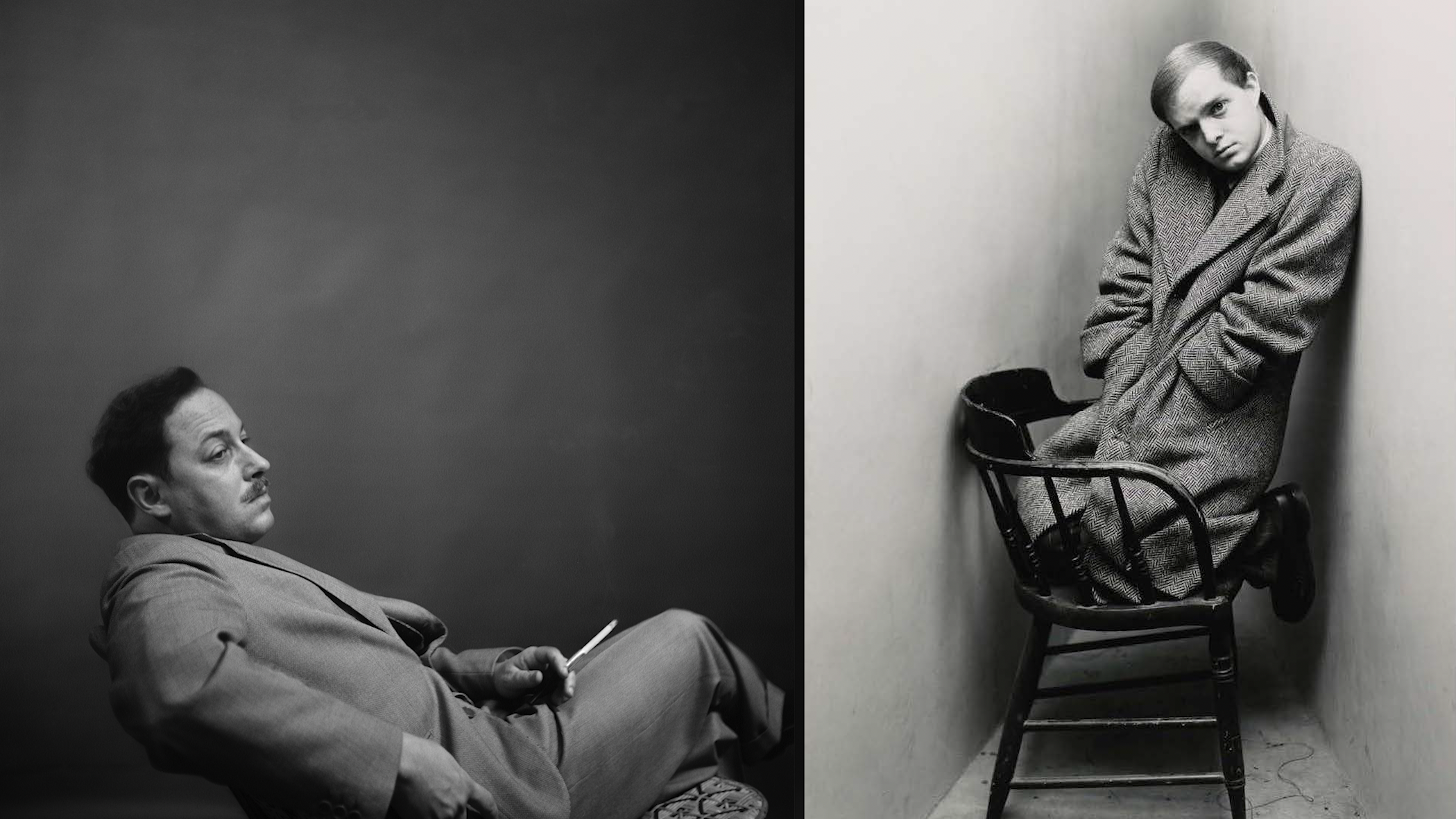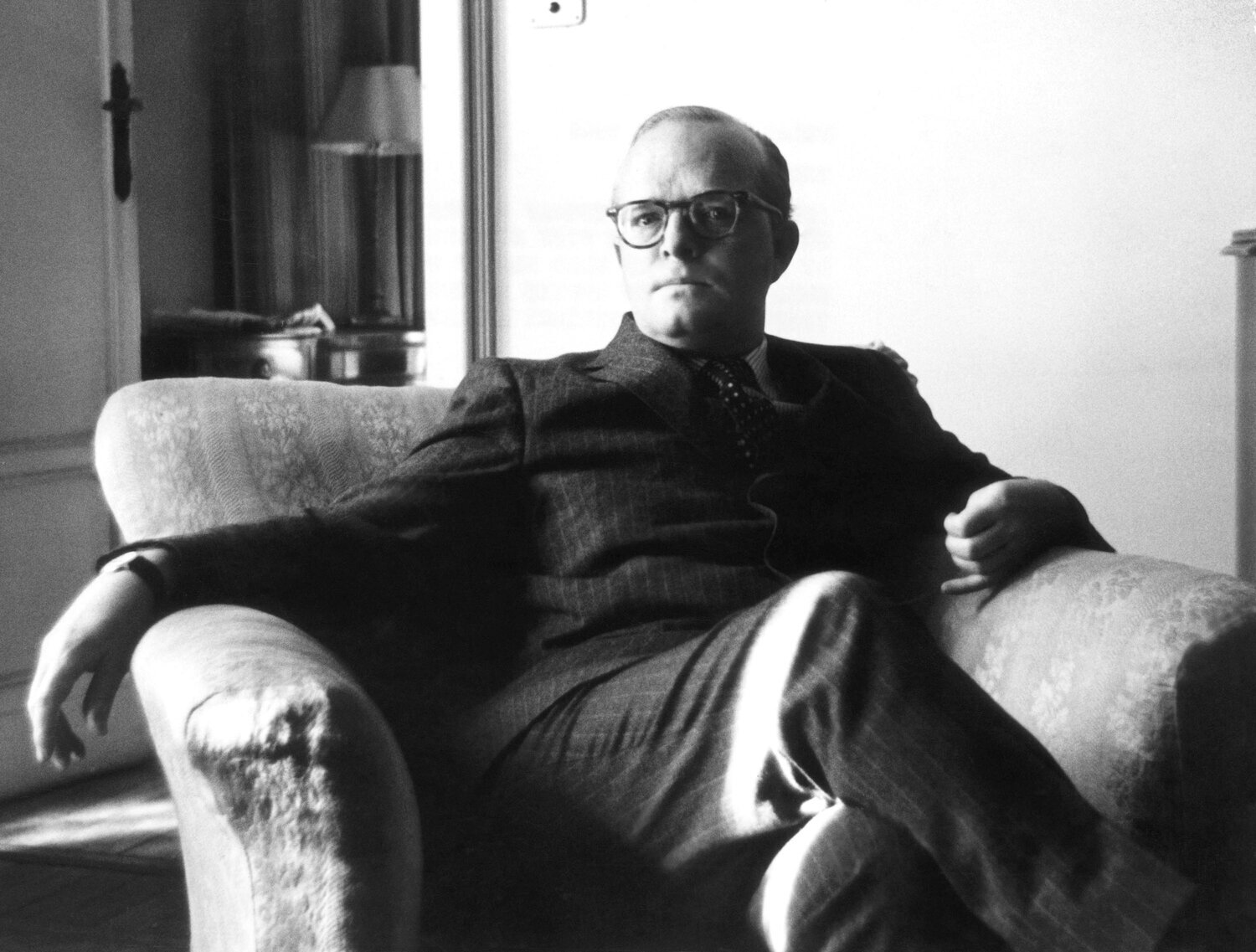Ahead of our release of Truman & Tennessee: An Intimate Conversation, we’ve put together some interesting facts about two of the greatest American writers of the last century.
“Capote” wasn’t Truman Capote’s real last name.
He was born Truman Streckfus Persons, but "Capote" wasn’t a pen name—it came from his stepfather, Joseph Capote, and his name was changed to “Truman Garcia Capote” in 1935. (Source: Mentalfloss)
Tennessee Williams’ given name wasn’t Tennessee
Thomas Lanier Williams III, the second child of Cornelius and Edwina Williams, was born in Columbus, Mississippi’s Episcopal rectory. At some point in 1938 or 1939, the young author—who’d previously been content to write under his given name—started calling himself “Tennessee.” Nobody knows why he chose this particular alias. He told one interviewer that “Tennessee Williams” originated as a nickname he’d received at the University of Iowa, his alma mater. “The fellows in my class could only remember that I was from a southern state with a long name. And when they couldn’t think of Mississippi, they settled on Tennessee,” he said. “That was all right with me, so when it stuck, I changed it permanently.” (Source: Mentalfloss)
Capote only wrote his drafts in yellow paper
Every writer has their own method when it comes to their craft. In Capote’s case, one habit he maintained was that he would write his first drafts out in yellow paper. When he was satisfied with how his writing had turned out, he would type out the final version onto white paper. (Source: Factinate)
One of Williams’ plays was picketed
In 1956, Time magazine wrote that Tennessee Williams’ first original screenplay “Baby Doll” was “just possibly the dirtiest American-made motion picture that has ever been legally exhibited”. The film, which told the story of two Southern rivals and a sensuous 19-year-old child bride, was picketed by nearly 20 million Catholics on its opening weekend, prompting nearly ¾ of the theaters to pull it. (Source: Kwahs)
Capote was hired by Rolling Stone to cover a Rolling Stones tour.
In 1972, the magazine hired Capote as their correspondent to cover the Stones’ Exile on Main St. tour. Although Capote headed out on the road with the band, he did not finish the article, later telling Andy Warhol in an interview for the magazine, "I enjoyed [being on tour]. I just didn’t want to write about it, because it didn’t interest me creatively. You know? But I enjoyed it as an experience. I thought it was amusing..." (Source: Mentalfloss)
Williams shared a crush with his sister
As teenagers, when Williams’ older sister Rose first became infatuated with a certain boy, Williams soon realized that he was also attracted to the same boy and his own sex. (Source: Flavorwire)
Capote gave Ray Bradbury his big break in writing
Bradbury had got his first important break when he was a teenager, in the late 1930s. He submitted a story to Mademoiselle magazine, where a young Truman Capote – who was actually four years younger than Bradbury – was working as an assistant editor. Capote read Bradbury’s story, which was titled ‘Homecoming’, and recommended to his editor that they publish it. (Source: Interesting Literature)
BEFORE MAKING IT BIG IN THE WORLD OF THEATRE, TENNESSEE WILLIAMS WORKED FOR A SHOE COMPANY.
Williams and his family relocated to St. Louis in 1918. Eleven years later, the future playwright enrolled at the University of Missouri, where he briefly studied journalism. Then, in 1932, Williams’s education came to an abrupt halt when his parents forced him to leave school and take a job at the International Shoe Company, his father’s workplace. Earning a meager $65 per month, Williams was tasked with lugging crates through the city, dusting countless shoes, and putting tedious lists together. He hated it.
In 1939, long after he'd left the position, he claimed to be 25 years old—even though he was really 28—in order to enter an under-25s contest. As far as Williams was concerned, the three years he’d spent at the company were “dead” years that didn’t count (Source: Mentalfloss).





